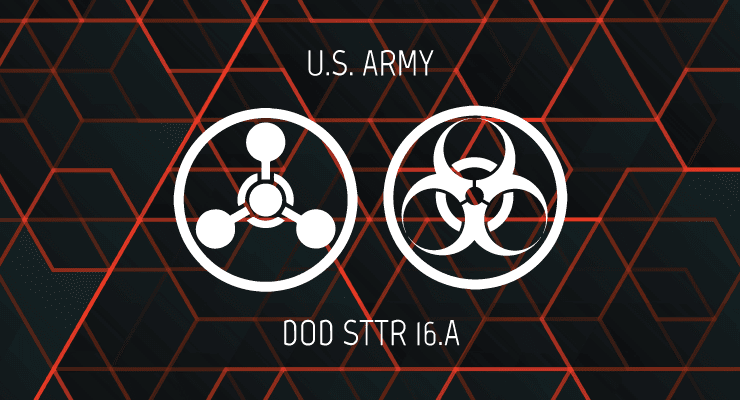The U.S. Army has announced new topics for the FY16.A Army Small Business Technology Transfer (STTR) Program.
The Army STTR Program aims to stimulate a partnership of ideas and technologies between innovative small business concerns (SBCs) and research institutions (RIs) through Federally-funded research or research and development (R/R&D). Although modeled substantially on the Small Business Innovation Research (SBIR) Program, it is a separate program and is separately financed.
Highlighted topics related to chemical and biological defense include:
Man-Portable and Fieldable Mass Spectrometer for Sequencing Peptides
The Army seeks development of a new miniaturized multi-order (MSn) mass spectrometer that is man-portable and capable of detecting and sequencing peptides derived from biological agents including bacteria, viruses, and toxins.
Several efforts have been made over the last decade to miniaturize mass spectrometers for the detection of chemical warfare agents (CWA), toxic industrial chemicals (TICs), and illicit drugs. From these investments, several portable mass spectrometry (MS) systems have been successfully commercialized demonstrating both the feasibility and utility of a miniaturized mass spectrometer.
At present there is a need to develop a new portable multi-order mass spectrometry system that can sequence peptides derived from biological agents including bacteria, viruses, and toxins. Prototypes/designs of portable backpack systems have been published and tested, but a fully functional system with the specifications needed for peptide sequencing have not been realized.
This type of new instrumentation should be flexible in design so that it can be coupled with the current state-of-the-art in sample preparation and/or liquid chromatography, ESI/ambient ionization, and data processing algorithms. Furthermore, the analysis and data handling systems should be designed in a way that, once completely mature, could be operated by a non-expert with minimal training.
Field Drug Identification Kit for Counter-Terrorism, Chemical/Biological Defense
Illicit drug trafficking is a key source of financing for terrorist organizations, and as a result, the U.S. Army plays an active role in countering illicit drug trafficking. Soldiers and military police are often asked with identifying powder substances or illicit drugs in difficult and demanding field environments. This topic aims to develop an easy to use, field-rugged drug identification kit.
Sophisticated electronic devices for detecting drugs do exist, however, these devices are typically expensive, bulky/heavy, non-ruggedized, and require a high level of training. Development of a novel detection platform that exhibits enhanced sensitivity and specificity over current test kits and avoids the need for bulky and complex instruments is desired.
The Army seeks a drug identification kit that is capable of detecting all major illicit drug classes in a single test, without subjective interpretation of data output. The ability to distinguish synthetic cannabinoids is of particular interest and will be a distinguishing feature for submission.
The STTR Program Management Office (PMO), located at the United States Army Research Office (ARO), manages the Army’s STTR Program.
The Army will begin accepting STTR proposals on January 11, 2016. Further details are available via Solicitation Number: DOD-STTR-16-A(541712) and at the DoD SBIR/STTR Small Business Portal. The proposal response deadline is February 17, 2016.


